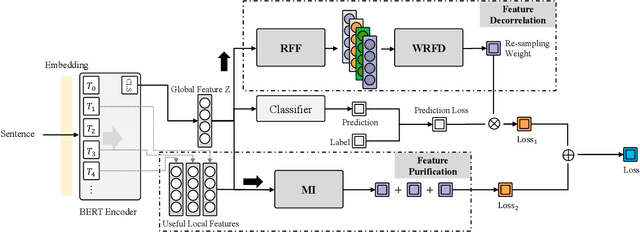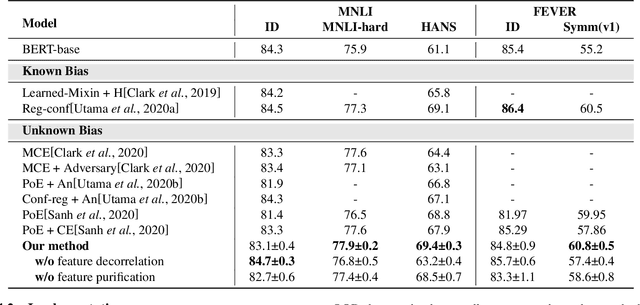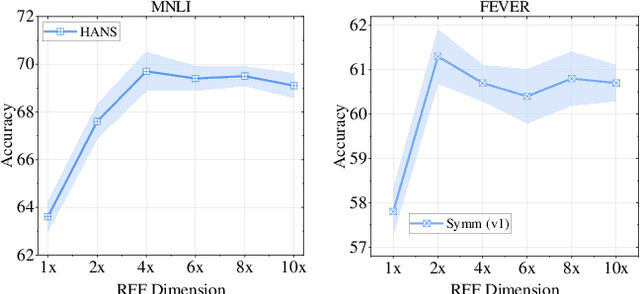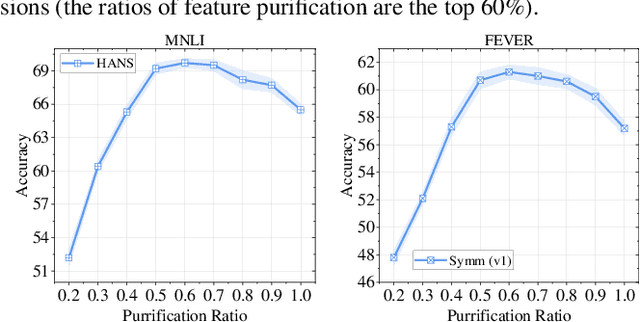Decorrelate Irrelevant, Purify Relevant: Overcome Textual Spurious Correlations from a Feature Perspective
Paper and Code
Feb 16, 2022



Natural language understanding (NLU) models tend to rely on spurious correlations (\emph{i.e.}, dataset bias) to achieve high performance on in-distribution datasets but poor performance on out-of-distribution ones. Most of the existing debiasing methods often identify and weaken these samples with biased features (\emph{i.e.}, superficial surface features that cause such spurious correlations). However, down-weighting these samples obstructs the model in learning from the non-biased parts of these samples. To tackle this challenge, in this paper, we propose to eliminate spurious correlations in a fine-grained manner from a feature space perspective. Specifically, we introduce Random Fourier Features and weighted re-sampling to decorrelate the dependencies between features to mitigate spurious correlations. After obtaining decorrelated features, we further design a mutual-information-based method to purify them, which forces the model to learn features that are more relevant to tasks. Extensive experiments on two well-studied NLU tasks including Natural Language Inference and Fact Verification demonstrate that our method is superior to other comparative approaches.
 Add to Chrome
Add to Chrome Add to Firefox
Add to Firefox Add to Edge
Add to Edge